Scientists Say
A weekly word defined, in a sentence and in context. Click here to find the alphabetized list.
-
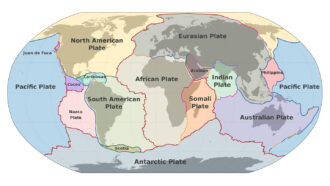 Earth
EarthScientists Say: Tectonic Plate
Tectonic plates are giant slabs of rock that make up Earth’s outer layer.
-
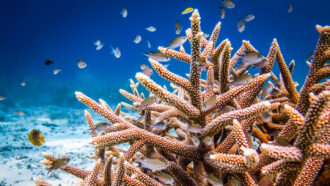 Animals
AnimalsScientists Say: Coral
Over 4,000 species of fish make their home among the reefs created by these colony-dwelling marine animals.
-
 Math
MathScientists Say: Parabola
A parabola is a U-shaped curve, where every point along that curve is the same distance from another point and a line.
-
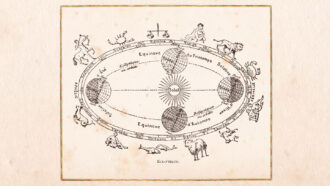 Math
MathScientists Say: Ellipse
Ellipse describes the shapes of planetary orbits around their stars and explains the wacky acoustic phenomenon of “whispering chambers.”
-
 Physics
PhysicsScientists Say: Explosion
Explosions happen when chemical or nuclear reactions blow out a lot of heat, noise and expanding gas.
-
 Brain
BrainScientists Say: Addiction
Recovering from addiction is hard but possible. Encouragement of loved ones can improve a person’s chances of overcoming this disease.
-
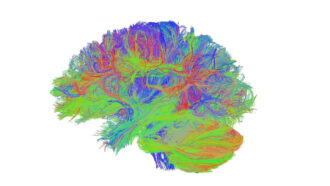 Brain
BrainScientists Say: Connectome
A connectome is a diagram of the cellular highways that carry information in the brain.
-
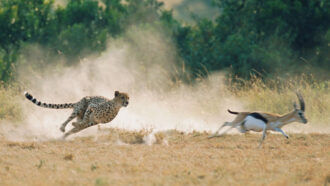 Ecosystems
EcosystemsScientists Say: Food web
All the species in an ecosystem and the feeding relationships between them get summed up with this handy picture.
-
 Math
MathScientists Say: Möbius strip
Möbius strips may be easy to make, but they have some pretty mind-bending properties.
-
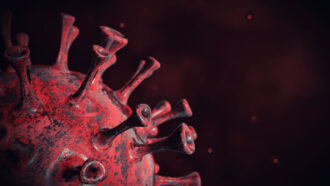 Microbes
MicrobesScientists Say: Virus
A virus must take over a living cell's machinery to make more viruses.
-
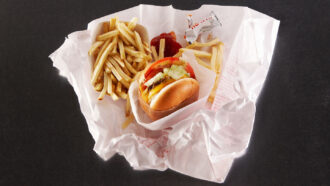 Chemistry
ChemistryScientists Say: PFAS
Non-stick coatings, stain-resistant cloth and other common materials leach long-lived PFAS into soil and water.
-
 Earth
EarthScientists Say: Altitude
Altitude is used to describe heights in geography, astronomy and math.